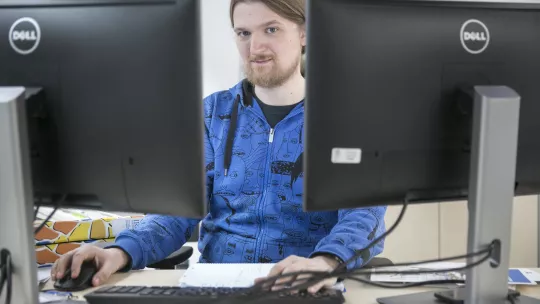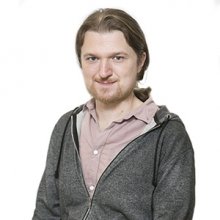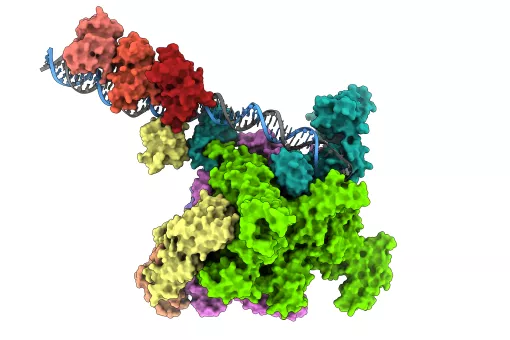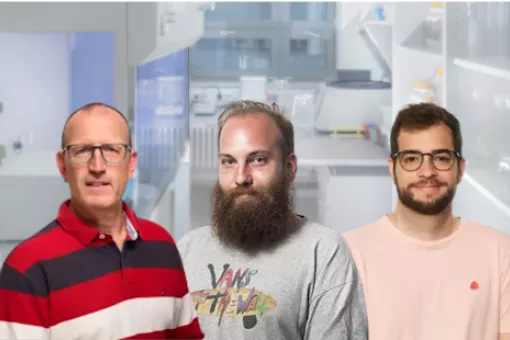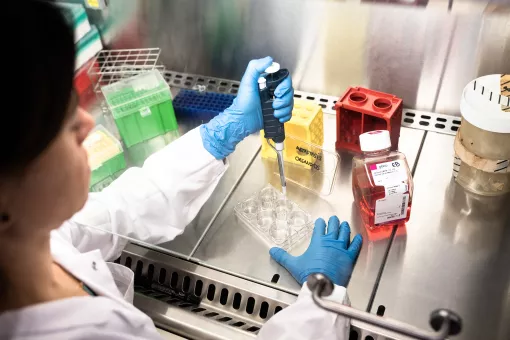Images
Fran Supek (IRB Barcelona) and Ben Lehner (CRG) identify important processes that create mutations that cause cancer by studying the genomes of more than 1,000 tumors.
Many mutations in human cancers are caused by mistakes made by a repair mechanism or ‘DNA spellchecker’ rather than the actual damage to DNA caused by the environment.
Sunlight and alcohol consumption increase the rate at which this happens, resulting in more mutations in the most important parts of our genomes.
Cancer is mostly caused by changes in the DNA of our cells that occur during our lifetime rather than those that we inherit from our parents. Identifying the causes of these ‘mutations’ is a difficult challenge because many processes can result in an identical DNA sequence change in a genome. A study developed by Fran Supek (currently a group leader at IRB Barcelona) and Ben Lehner at the Centre for Genomic Regulation (CRG) in Barcelona have now identified one of the important mechanisms that causes these mutations as mistakes made by a DNA ‘spellchecker’ that repairs damage in our genomes.
The researchers identified this process by studying clusters of mutations in more than a thousand tumor genomes, meaning that they hunted for mutations that occur close together in the same part of the genome, such that this is highly unlikely to have happened by chance. The goal was to get a better picture of the mutagenic factors that affect human cells and that might cause cancer.
“Clustered mutations are likely to be generated at the same moment in time, so by looking at several neighboring mutations at once, we can have a better understanding of what has damaged the DNA,” says Fran Supek, first author of the study and currently group leader and ‘Ramon y Cajal’ fellow at the Institute for Research in Biomedicine (IRB Barcelona). “Like when police study a pattern of recurrent crimes in order to find a serial killer, here we show that focusing on patterns of clustered mutations and using a large number of cancer genomes, we can identify the culprits that cause mutations in tumors,” he explains.
By studying clusters, the scientists identified nine mutational signatures that were evident in more than 1,000 genomes of tumors from various organs. Their results, published in Cell on 27th July, revealed new major mutation-causing processes, including an unusual case of DNA repair which should normally safeguard the genome from damage, but is sometimes subverted and starts introducing clustered mutations.
“Our work provides information about new biological mechanisms underlying some types of cancers. For example, the main oncogenes involved in melanoma are well-known, but it is not known what causes the exact mutations that activate these genes to cause cancer. While many mutations in melanoma are recognized to be a direct consequence of UV radiation, the origin of mutations affecting the most important oncogenes is still a mystery. We identified a mechanism that has the capacity to cause these oncogenic, cancer-driving mutations in melanoma,” adds Supek.
One of these new mutational processes is highly unusual and it is most evident in active genes. These regions are usually protected by DNA repair mechanisms - in other words, DNA repair is directed towards the places where it is needed most. “Our results suggest that exposure to carcinogens, such as high amounts of alcohol, can shift the balance of the DNA repair machinery from a high-fidelity mode to an error-prone mode, causing the mutation rates to shoot up in the most important bits of the genome,” says Ben Lehner, ICREA research professor at the EMBL-CRG Systems Biology Research Unit and principal investigator of this study. “This error-prone repair generates a large number of mutations overall and is likely to be a major mutation source in human cells”.
DNA repair is extremely important because our bodies are constantly renewing their cells which involves copying more than 2 meters of DNA and errors inevitably get introduced. Moreover, mutagens in the environment like sunlight and tobacco smoke damage DNA and this damage has to be corrected. DNA repair is normally exquisitely accurate, but some types of damage can only be corrected using lower-fidelity ‘spellcheckers’. It is the mistakes made by one of these less accurate spellcheckers that cause many of the mutations seen in different types of tumors, including liver, colon, stomach, esophagus and lung cancer.
New evidence links high levels of alcohol, sunlight, and smoking to mutations
Alcohol is a well-known contributor to many types of cancer, but the reasons for this are surprisingly unclear. Supek and Lehner’s work suggests that one effect of alcohol, when consumed in large amounts, is to increase the use of low-fidelity DNA repair, thereby increasing the mutation rate in the most important regions of the genome. This finding provides a first glimpse into one mechanism by which alcohol may contribute to cancer risk. High exposure to sunlight seems to have a similar consequence.
As another part of the study scientists also found that cigarette smoking is associated with several different kinds of clustered mutations, further revealing the details of how smoking results in horrific damage to our DNA.
(Source: Laia Cendrós, CRG)
Reference article:
Supek, Fran and Lehner, Ben
Clustered mutation signatures reveal that error-prone DNA repair targets mutations to active genes
Cell. 27 (2017). DOI: 10.1016/j.cell.2017.07.003
About IRB Barcelona
The Institute for Research in Biomedicine (IRB Barcelona) pursues a society free of disease. To this end, it conducts multidisciplinary research of excellence to cure cancer and other diseases linked to ageing. It establishes technology transfer agreements with the pharmaceutical industry and major hospitals to bring research results closer to society, and organises a range of science outreach activities to engage the public in an open dialogue. IRB Barcelona is an international centre that hosts 400 researchers and more than 30 nationalities. Recognised as a Severo Ochoa Centre of Excellence since 2011, IRB Barcelona is a CERCA centre and member of the Barcelona Institute of Science and Technology (BIST).

